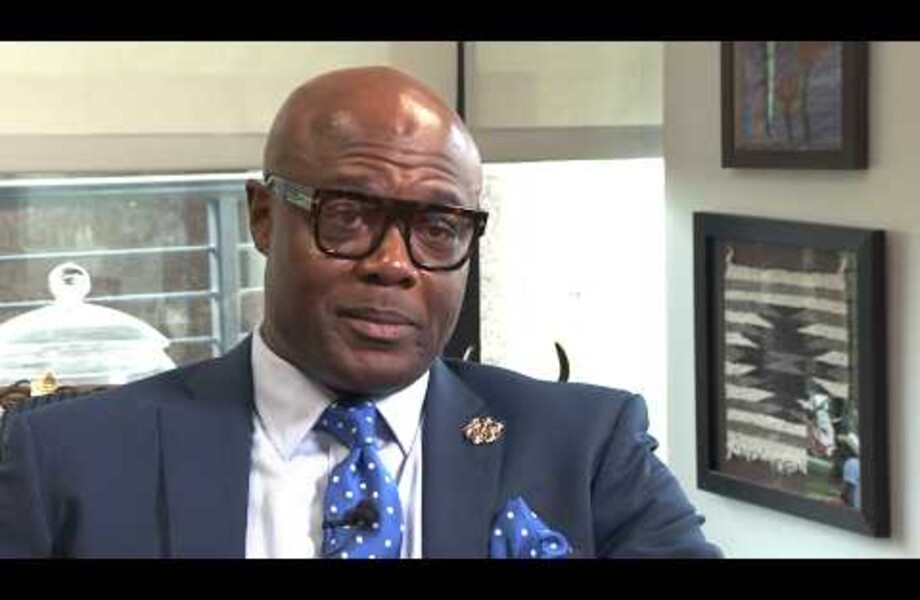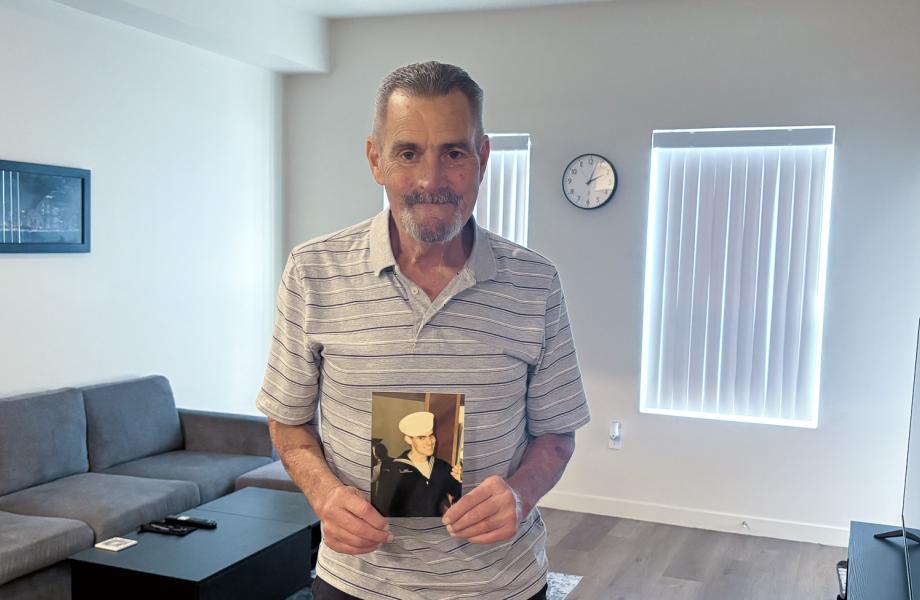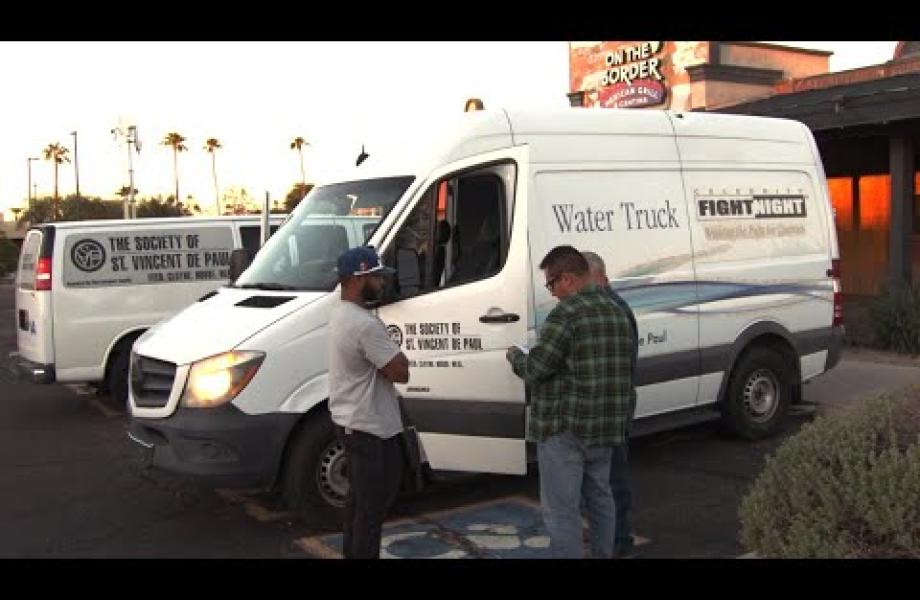From sleeping in the car to a studio apartment
Rebecca Torres lived through a time of “darkness,” as she calls it.
There was the darkness of her mind, but also the darkness that was the trunk of her car, a black sedan where she slept with her American bully dog named Boss during years of homelessness.
Only with the help of St. Vincent de Paul’s new Social Work Services (SWS) program did Rebecca make it off the streets and into a studio apartment. The new program, established in the spring of 2021 and made possible by the Garcia Family Foundation, focuses on solving homelessness one case at a time through intensive, individualized wraparound services.
The SWS program is based in SVdP's Resource Center, in the Diane & Bruce Halle Center for Hope & Healing, which serves those at risk of or experiencing homelessness. The program's holistic approach has already connected more than 200 individuals to housing since its start.
Rebecca counts among those housing successes.
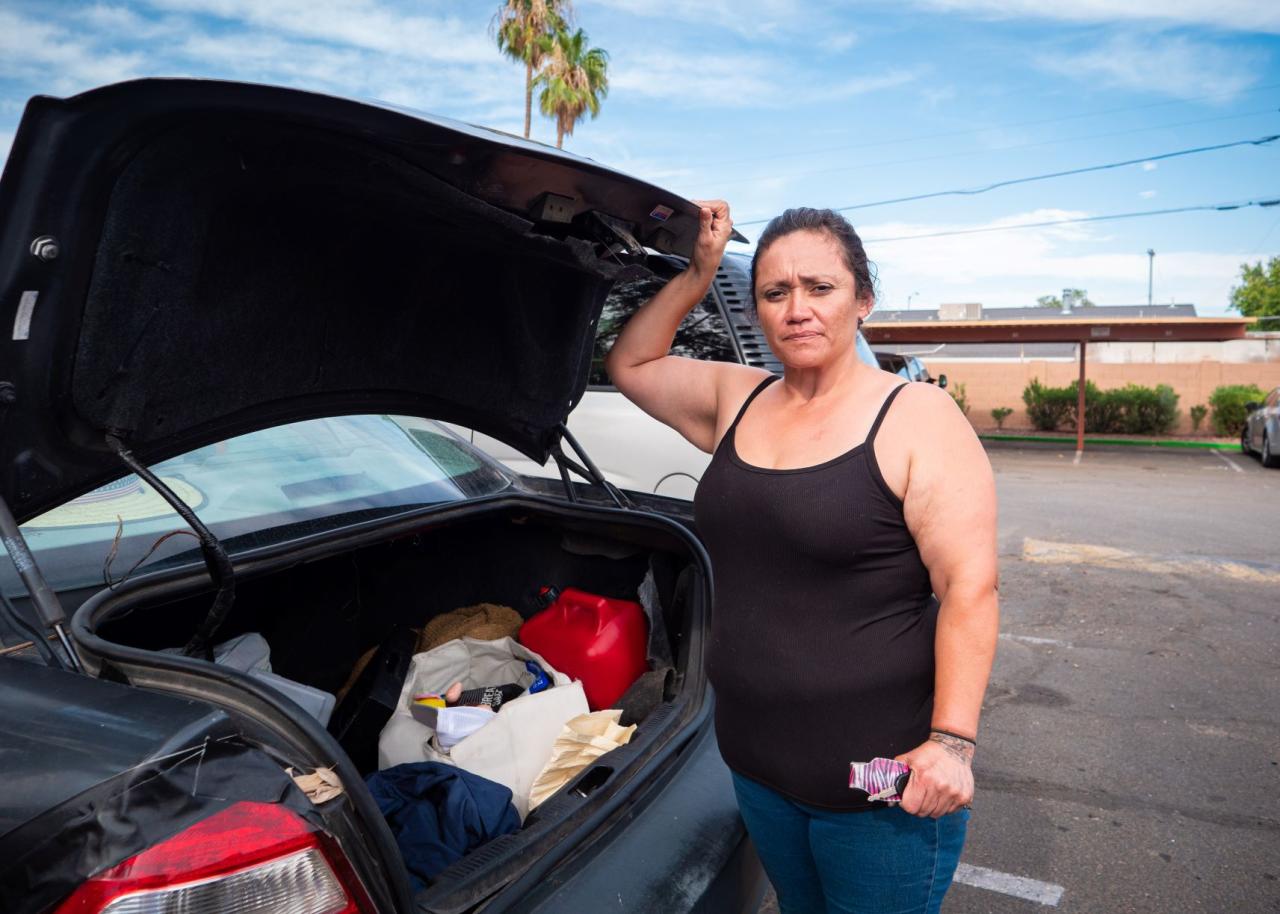
A diagnosis too late
Rebecca, who is 42, has schizoaffective disorder — a mix of schizophrenia with a mood disorder. The diagnosis didn’t come until three years ago. In her case, it manifests as hallucinations, voices and extreme paranoia complicated by bipolar disorder. She experienced her first, mild symptoms when she was a teen. They grew more out of control into adulthood, especially when off medication. She eventually lost both her jobs, one at Amazon and another at an animal shelter. Without an income, she lost her home as well.
“Everything just started to go downhill,” Rebecca says. “I was so afraid to be homeless, and I ended up homeless. I was staying in a backyard of my family member’s house. We just lived in the backyard, but then it got hot, and it just got too much. So we jumped from place to place, but nobody, nobody wanted us because of Boss.”
“I was so afraid to be homeless, and I ended up homeless.”
That’s how Rebecca ended up living out of her car with her dog. She would push the backseat down, so they could curl up every night in the trunk for protection and warmth.
Rebecca sought shelter at local facilities, but when she learned she couldn’t have Boss with her, that was a deal breaker.
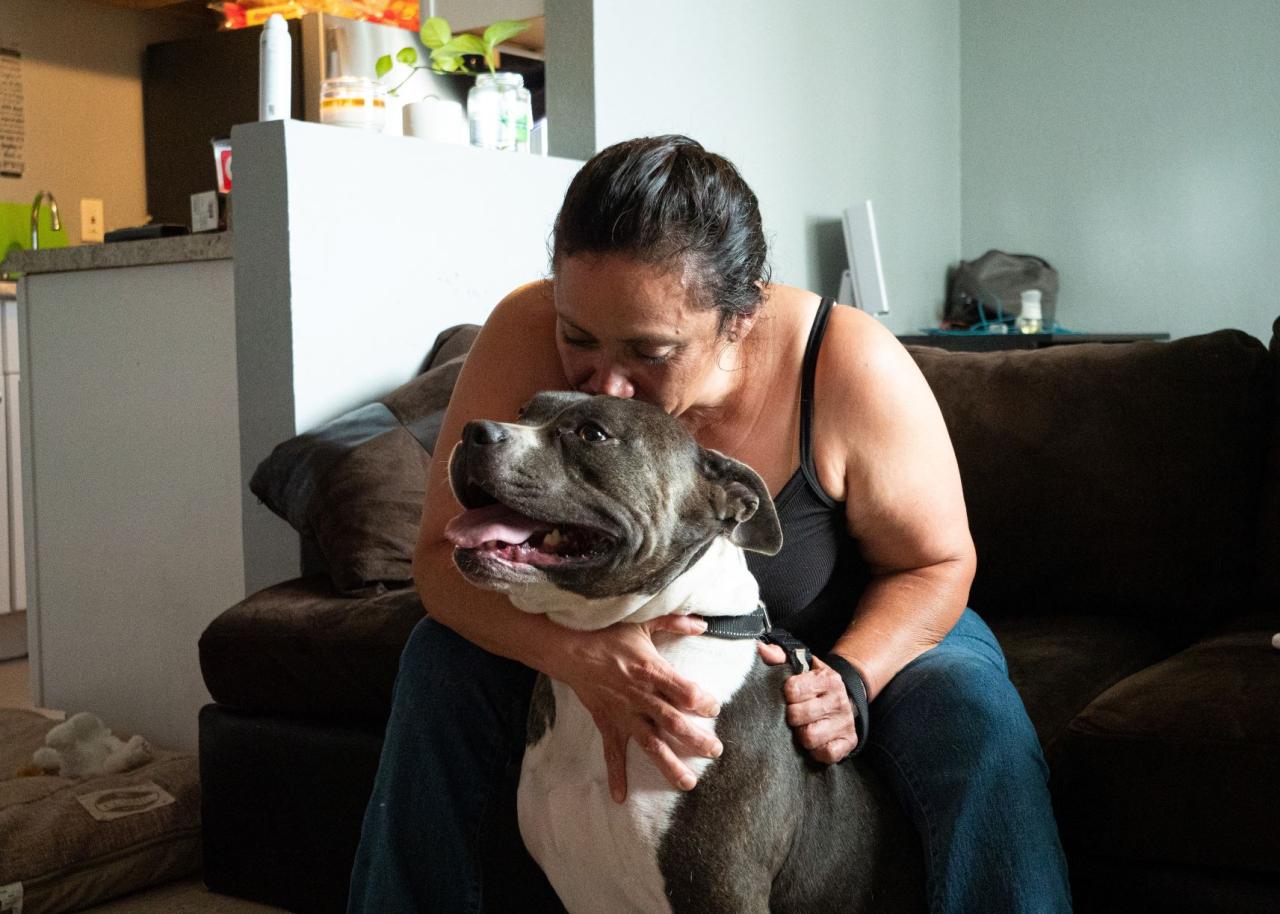
“He's everything to me,” Rebecca says. “He saved me because I didn't want to live no more. And I tried to commit suicide, and he alerted help for me. So he's my best friend. Boss, he's my guy.”
“I tried to commit suicide, and he alerted help for me. So he's my best friend. Boss, he's my guy.”
Unfortunately, living on the street— even with Boss for protection — amplified Rebecca’s paranoia. She recalls random people knocking on her window and how she discovered secluded alleys to park where she and Boss wouldn’t be bothered.
Rebecca tried her best to maintain “normalcy,” going to doctor appointments and starting medication again, which helps her cope with her disorder but offers no cure. She also started job hunting.
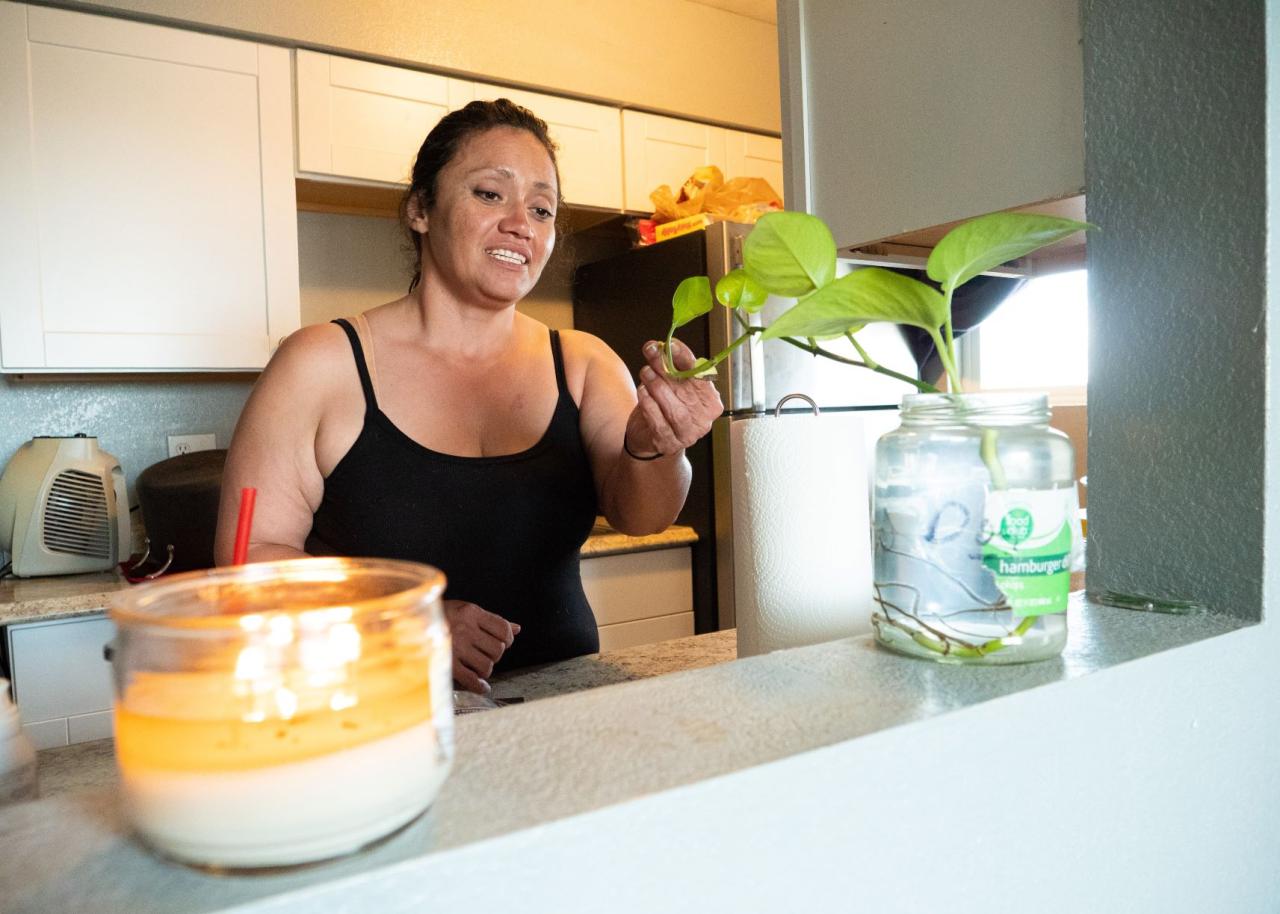
A fresh start
Scraping together cash for fuel, somehow Rebecca managed to land a job working waste management at the airport for $13 an hour. It wasn’t glamorous, but it paid. She began her daily job of picking up trash on the grounds and making sure runways were clear of any debris that might fly up and get stuck in a plane engine. With no other choice, she’d leave Boss in the car.
At the end of the day, she’d return exhausted, sweaty and smelly. Still sleeping in her car and wanting to be presentable for the next workday, Rebecca sought out SVdP’s Resource Center, where she could take daily showers and get fresh clothing.
That’s when she met Krashanda Cleveland, manager of the SWS Program.
“I noticed Rebecca as a regular coming in to take showers,” says Krashanda, who — along with her SWS staff — looks for Resource Center guests who show promise and desire to get off the street. “It was just a matter of us starting that conversation.”
Rebecca shared about her living situation and how thankful she was to have (at the very least) a place to make sure she was clean and ready for work.
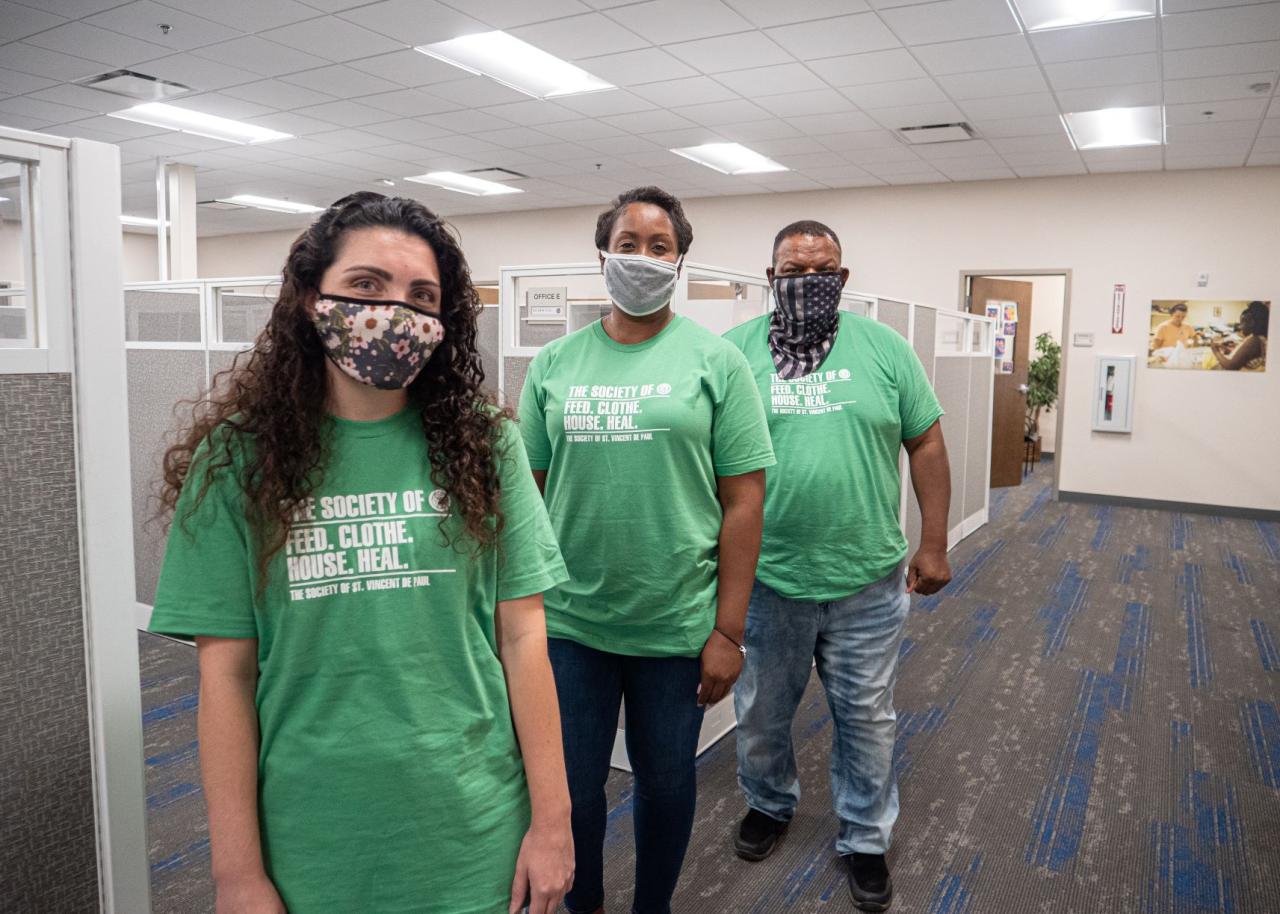
“I felt like, this is somebody that we could possibly help because she has the employment,” Krashanda says. “She's just lacking the housing.”
Krashanda connected Rebecca with SVdP case worker Mary Beth Marrone. Together, they identified barriers to Rebecca’s housing and focused on setting achievable goals.
“At first I was like, okay, are they going to be like everybody else and tell me how they're going to help me? But then they don't help me, and they just push me out there? But that's not what happened.”
“At first I was like, okay, are they going to be like everybody else and tell me how they're going to help me? But then they don't help me, and they just push me out there? But that's not what happened,” Rebecca says. “They didn't leave me by myself. They gave me papers, resources, numbers to call and apartments that work with them.”
The team also helped with Boss. Beyond vaccinations and microchipping, they found temporary foster care for him, something only possible with Garcia Family Foundation’s unrestricted funding. That allowed Rebecca to work without worry and focus on apartment hunting. She stayed persistent, continuing to show up and seek guidance from Mary Beth, who would call almost every day.
“Making that contact every day, built a spirit of hope in her and that security of we weren't just going to abandon her or neglect her through the process,” Mary Beth says. “It kind of gave her more faith in this process that it would move forward and just not fall through.”
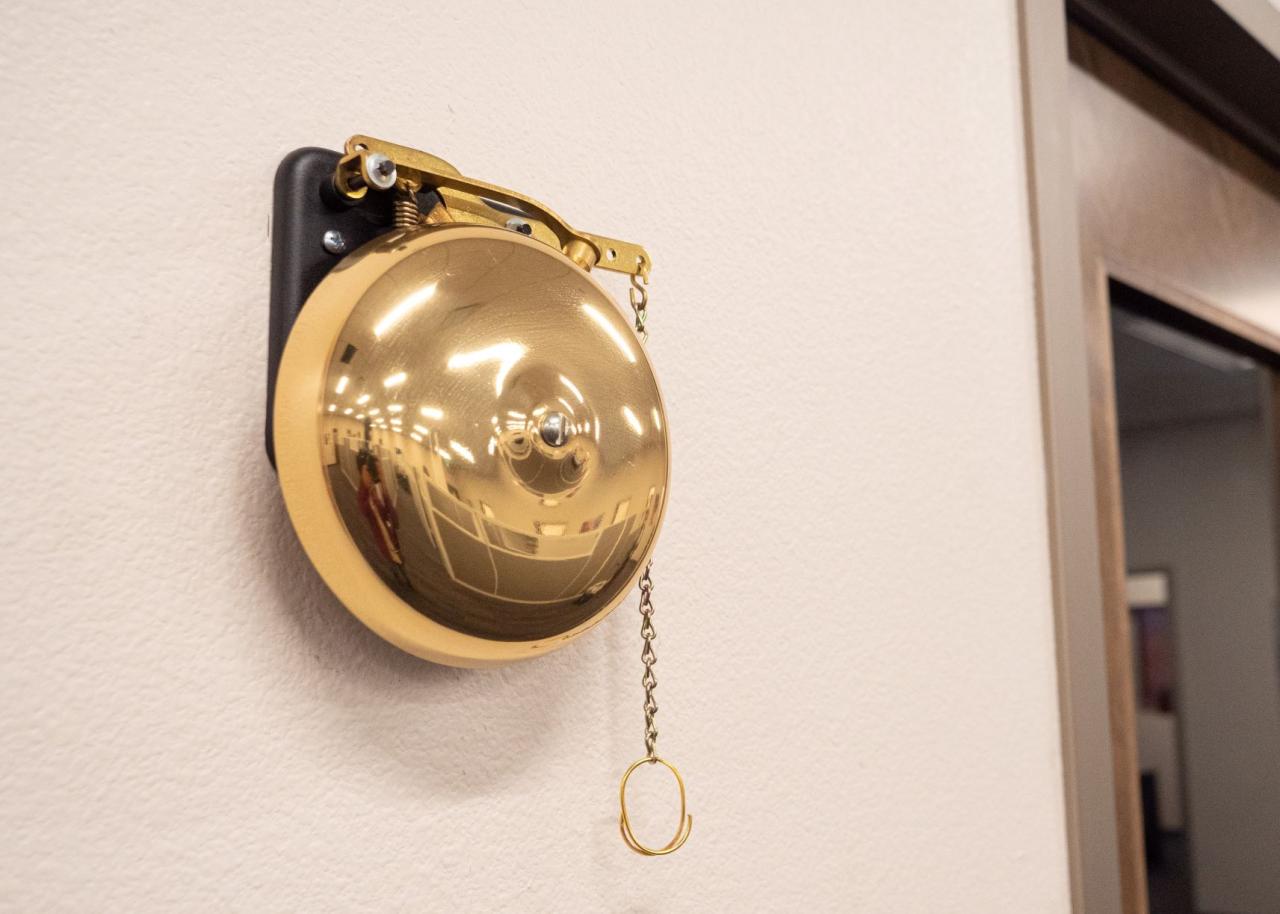
One ring away
When the phone rang from a landlord, Rebecca almost didn’t believe it. Her application had been accepted for a small studio apartment on Indian School Road, just off I-17. She immediately called Mary Beth with the news and summer move-in date.
Back at SVdP’s Resource Center, the SWS team got to work. Not only did they cover Rebecca’s deposit and first month’s rent, but they also set in motion a furniture delivery from SVdP’s nearest thrift store and readied a food box for Rebecca as well.
With every housing success, the team has a tradition where the newly housed gets to ring a victory bell hung on the wall of the center. The day Rebecca picked up her check, she cried as she rang the bell.
“I was already really emotional because it was a long journey,” Rebecca says. “And I didn't know if I was going to make it, but I did. And ringing the bell made me feel like I had pride again. I felt like I finally accomplished something.”
“I didn't know if I was going to make it, but I did. And ringing the bell made me feel like I had pride again. I felt like I finally accomplished something.”
“She wanted it so bad. She wanted to be off the streets,” Krashanda says, “and she just needed some help making that work, someone being able to guide her in the right directions. She did the rest.”
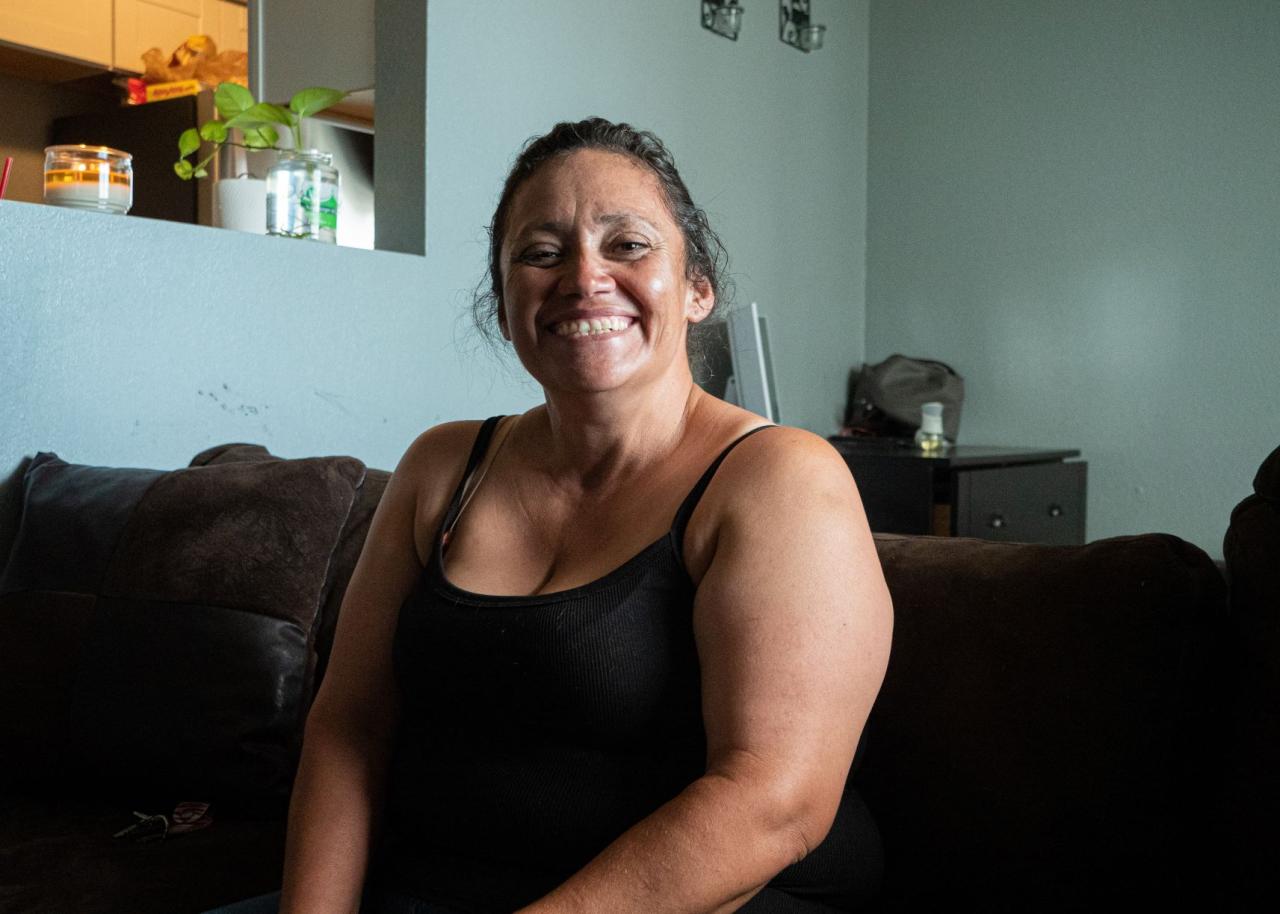
Four walls and two dog beds
The doormat outside Rebecca’s apartment says, “Bless this mess.” And on each wall of her studio, she has inspirational wall prints — all faith based. Rebecca says it helps her keep going even when things still seem impossible.
On $13 an hour, she budgets carefully. While her mental health disorder qualifies her for Social Security Disability, she chooses not to accept that help, because she feels she can work.
Of course, her dog Boss is her daily motivator as well. Back home with her now, she sets aside just enough to make sure he has a fresh bone each week to stay busy while she’s at work. And thanks to SVdP’s thrift store, Boss has not one, but two beds.
For the next year, the SWS team will follow up to check on Rebecca and make sure all is well.
Recently, she fell while climbing the concrete stairs to her second-floor studio, resulting in knee issues that make working on her feet all day difficult.
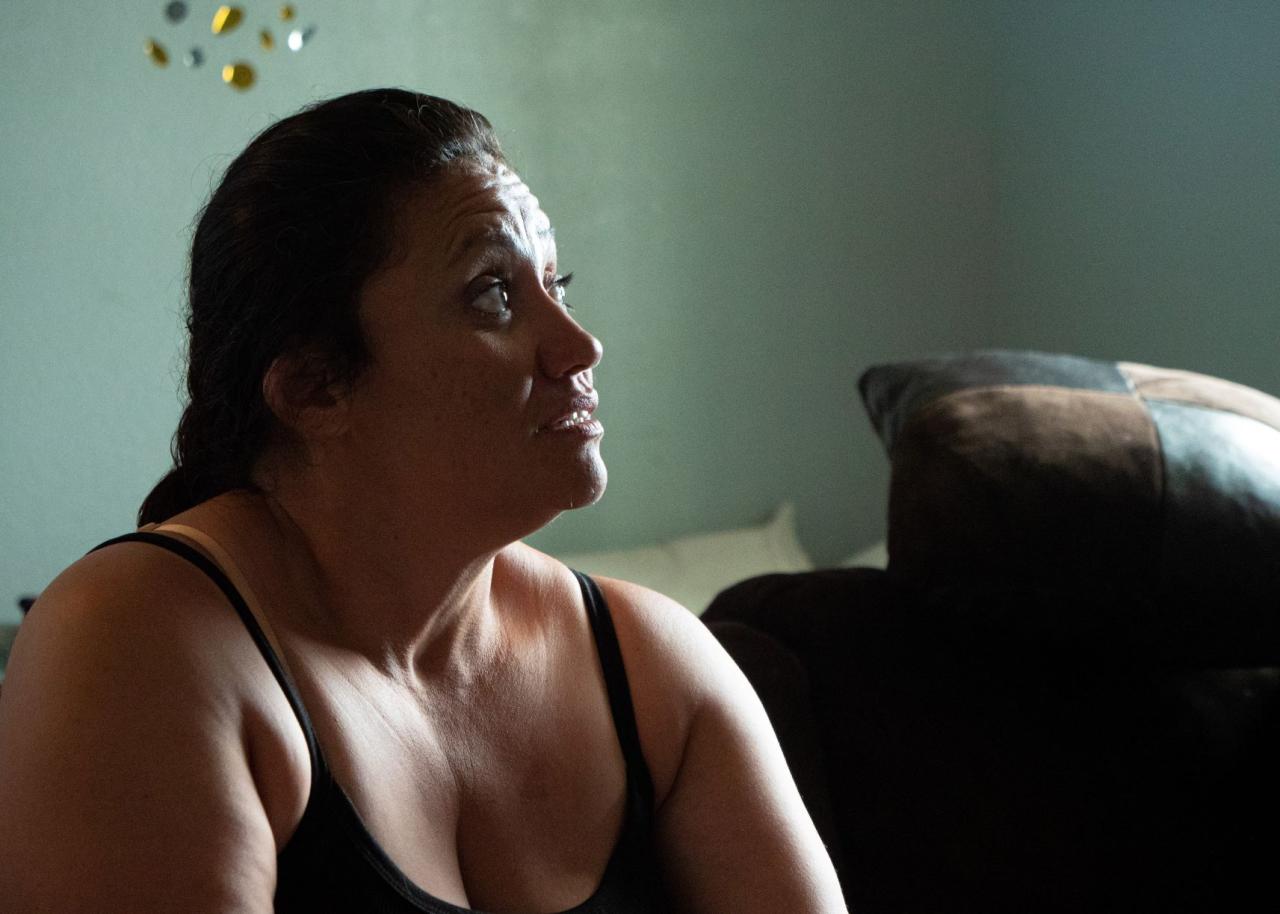
“If I don't work, I don't have money,” Rebecca says, “and if I don't have money, then I don't have a place to live. So I've been working. I worked today with my knee hurt, because I know rent is due.”
“If I don't have money, then I don't have a place to live. So I've been working. I worked today with my knee hurt, because I know rent is due.”
While Rebecca powers through, the difference this time is the support system she has in Mary Beth, who continues to help her toward solutions, be it medical care or occasional food assistance.
Quiet on her sofa for a moment, Rebecca embraces Boss. Recollecting their journey together, she looks him in the eye and says, “I have to make it.”
This article originally appeared in the winter 2021 issue of Vincentian Connection.

